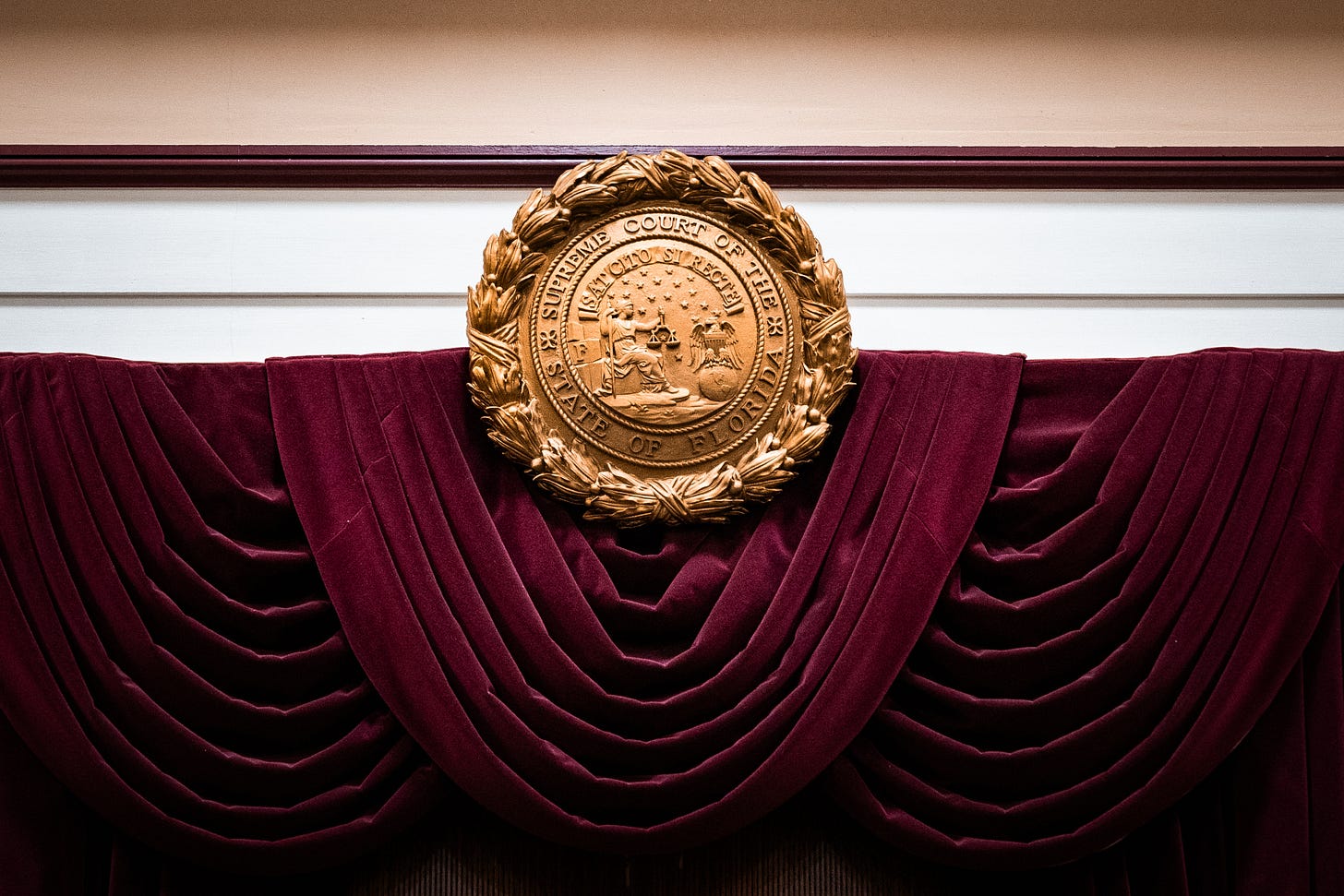Florida Supreme Court affirms Markeith Loyd's convictions and sentence of death on direct appeal
In yesterday’s regular release of opinions, the Florida Supreme Court issued its decision in Markeith D. Loyd’s direct appeal, affirming Loyd’s convictions and sentence of death.
In yesterday’s regular release of opinions, the Florida Supreme Court issued its decision in Markeith D. Loyd’s direct appeal, affirming Loyd’s convictions and sentence of death.

Loyd was convicted of first-degree murder, among other charges, for killing Orlando police officer Lieutenant Debra Clayton in January 2017. The jury unanimously recommended a sentence of death on first-degree murder, and the judge sentenced Loyd to death.
Loyd raised thirteen claims on direct appeal. The Court denied each of Loyd’s claims in turn. At least two of Loyd’s claims raise questions regarding his competency, including a claim regarding an insanity defense and a claim regarding Loyd’s competency to be sentenced. Loyd also raised claims based on comments made by the prosecutor during trial.
Loyd also argued that the death penalty itself violates the Eighth Amendment to the U.S. Constitution. He raised four reasons for this:
(1) the death penalty no longer matches society’s standards of decency; (2) thirty people sentenced to death have been exonerated in Florida; (3) jurors from certain geographical areas are more inclined to recommend a death sentence; and (4) there are long delays between the imposition of the sentence and the execution of the sentence.
The Court went through each one and rejected the argument for one reason or another. On (1), the Court wrote:
In a similar vein, the death sentence is not unconstitutional just because other states have chosen to abolish it. At bottom, the Constitution itself contemplates, in the Fifth and Fourteenth Amendments, that the government may take a life if the government affords the person due process of law.
On (2), the Court quoted Justice Scalia referring to the argument as “gobbledy-gook.” On (3), the Court said it was “persuaded by Justice Thomas’s Glossip concurrence,” which rejected this theory. On (4), the Court said it recently rejected the argument in Dillbeck.
In addition, the State raised one challenge on cross-appeal. The State argued that the Court’s 2020 decision in Poole “eliminated any requirement” that the jury engage in weighing or determining the sufficiency of the aggravation and, therefore, the jury instructions were improper.1 The Court determined the State’s cross-appeal moot based on the Court’s decision to affirm Loyd’s convictions and sentence of death.
Justice Labarga concurred in result, reiterating his dissent from the Court abandoning proportionality review on direct appeal. (More on that here.)
Justice Sasso did not participate. Justice Grosshans was recused. The full decision can be read here.




